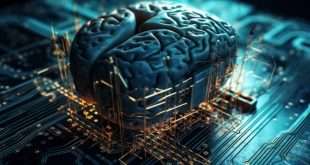In the world of web technology and advanced computing, there is a rising force that promises to revolutionize the very foundations of computing as we know it. Quantum Computing, with its mind-boggling concept of qubits, is set to unleash unprecedented computational power that could leave even the most powerful supercomputers in the dust. In this blog, we will explore the fascinating world of Quantum Computing, its potential applications, and the challenges it poses to traditional computing paradigms.
Understanding Quantum Computing: A Brief Introduction
Quantum Computing operates on the principles of quantum mechanics, a branch of physics that deals with the behavior of subatomic particles. Unlike classical bits used in traditional computing, qubits can exist in multiple states simultaneously, thanks to the phenomenon of superposition and entanglement. This unique property allows Quantum Computers to perform complex calculations exponentially faster than classical counterparts.
The Power of Qubits Unleashed
The fundamental unit of Quantum Computing is the qubit. Each qubit has the potential to represent a 0, a 1, or both 0 and 1 simultaneously due to superposition. This enables Quantum Computers to handle a vast number of possibilities simultaneously, making them exponentially more powerful than classical computers for certain types of problems.
Web Technologies and Quantum Computing
As Quantum Computing continues to evolve, it is expected to impact various web development technologies. Quantum algorithms may offer significant advancements in encryption and security, which could reshape how web hosting and cloud services handle data protection. The convergence of web technologies and Quantum Computing opens up new possibilities for creating more secure and efficient online platforms.
Quantum Computing Applications
The potential applications of Quantum Computing are diverse and far-reaching. From drug discovery and materials science to financial modeling and optimization problems, Quantum Computers promise breakthroughs that could have profound implications for various industries. For example, Quantum Computing could revolutionize the field of artificial intelligence by exponentially speeding up machine learning algorithms.
The Challenges Ahead
While Quantum Computing holds immense promise, it also faces significant challenges. Quantum computers are incredibly sensitive to environmental disturbances and require ultra-cold temperatures to operate effectively. Additionally, error rates in quantum computations must be minimized for practical use. Researchers are working tirelessly to overcome these hurdles to make Quantum Computing more accessible and commercially viable.
Web Computing and Quantum Advancements
The marriage of Quantum Computing and web technologies offers a glimpse into the future of web computing. As Quantum Computing becomes more refined and stable, it could enable quantum-enhanced web applications that outperform classical counterparts in speed and efficiency. This convergence may lead to a new era of web development technologies that harness the power of qubits for everyday use.
The Future of Web Development Technologies
As Quantum Computing progresses, it is vital for web developers to stay abreast of advancements in this field. Understanding the potential impact of Quantum Computing on web development technologies will enable developers to prepare for the paradigm shift and seize new opportunities to create more innovative and robust web solutions.
Embracing Quantum-Resistant Cryptography
With Quantum Computing’s potential to break conventional cryptographic methods, there is a growing need for quantum-resistant cryptography. Researchers are exploring new encryption techniques that can withstand the computational power of quantum algorithms, ensuring data security in a post-quantum era.
Quantum Computing and AI Synergy
The combination of Quantum Computing and artificial intelligence represents an exciting frontier. Quantum-enhanced machine learning algorithms have the potential to revolutionize AI applications, making AI systems more efficient and capable of handling complex tasks with unprecedented speed.
Final Words
Quantum Computing stands at the cusp of a transformative era in computing. Its unrivaled computational power, driven by qubits’ unique properties, promises to redefine how we approach computing challenges. As web technologies and Quantum Computing converge, the potential for innovation and growth in various industries is unparalleled.
Commonly Asked Questions
Q1: What is Quantum Computing’s significance for web development technologies?
A1: Quantum Computing’s significance lies in its ability to solve complex problems exponentially faster than classical computers. For web development, this means improved security, more efficient algorithms, and the potential for quantum-enhanced web applications.
Q2: How does Quantum Computing impact AI?
A2: Quantum Computing offers a synergy with AI by enabling faster and more efficient machine learning algorithms. This could lead to smarter and more powerful AI systems capable of tackling complex real-world challenges.
Q3: Can Quantum Computing break encryption?
A3: Quantum Computing’s immense computational power poses a threat to conventional cryptographic methods. However, researchers are actively working on quantum-resistant encryption techniques to safeguard data in a post-quantum world.
Q4: When will Quantum Computing be widely accessible?
A4: While Quantum Computing is still in its early stages, significant progress is being made. It is difficult to predict an exact timeline, but as technology matures and challenges are overcome, wider accessibility may become a reality in the coming years.
Q5: What industries will benefit most from Quantum Computing?
A5: Industries such as pharmaceuticals, materials science, finance, and AI stand to benefit significantly from Quantum Computing’s capabilities. Its potential to tackle complex problems efficiently opens new avenues for breakthroughs in these domains.
 webfily
webfily



